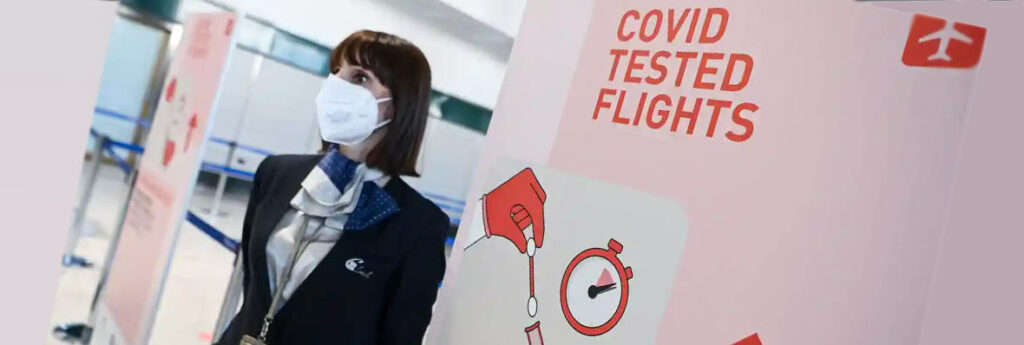IATA is urging governments to ensure that the high (and widely varying) costs of PCR testing – including potential profiteering – don’t put travel out of reach of travellers. The airline association says COVID-19 testing must not only be timely, widely available, effective, but affordable.
An IATA sampling of costs for PCR tests (the test most frequently required by governments) in 16 countries showed wide variations by markets and within markets. (It should be noted that Canada was not included in the survey).
Of the markets surveyed, only France complied with the World Health Organization’s (WHO) recommendation for the state to bear the cost of testing for travellers.
Of the 15 markets where there is a cost for PCR testing to the individual, the average minimum cost for testing was $90 while the average maximum cost was $208.
IATA notes that, even taking the average of the low-end costs, adding PCR testing to average airfares would dramatically increase the cost of flying for individuals:
• Pre-crisis, the average one-way airline ticket, including taxes and charges, cost $200 (2019 data). A $90 PCR test raises the cost by 45% to $290.
• Add another test on arrival and the one-way cost would leap by 90% to $380.
• Assuming that two tests are needed in each direction, the average cost for an individual return-trip could balloon from $400 to over $800.
• The impact of the costs of COVID-19 testing on family travel would be even more severe. Based on average ticket prices ($200) and average low-end PCR testing ($90) twice each way, a journey for four that would have cost $1,600 pre-COVID, could nearly double to $3,040—with $1,440 being testing costs.
“As travel restrictions are lifted in domestic markets, we are seeing strong demand. The same can be expected in international markets,” says IATA director general Willie Walsh. “But that could be perilously compromised by testing costs – particularly PCR testing. Raising the cost of any product this significantly will stifle demand.
“The impact will be greatest for short haul trips (up to 1,100 km): with average fares of $105, the tests will cost more than the flight,” he adds. “That’s not what you want to propose to travellers as we emerge from this crisis. Testing costs must be better managed. That’s critical if governments want to save tourism and transport jobs; and avoid limiting travel freedoms to the wealthy.”
Walsh notes that the World Health Organization’s International Health Regulations stipulate that states should not charge for testing or vaccination required for travel, or for the issuance of certificates, and that the WHO COVID Emergency Committee recently reiterated this position, calling on governments to reduce the financial burden on international travellers of complying with testing requirements and any other public health measures implemented by countries.
Montreal-based IATA charges that many states are ignoring their international treaty obligations, putting a travel recovery in jeopardy and risking millions of livelihoods.
Moreover, Walsh wonders why testing costs vary so widely from country to country. “How is it that the minimum cost of a PCR test can be as low as $77 in Australia but $278 in Japan, for example?” he asks.
And high testing costs, he maintains, also incentivize the market for fake certificates.
Among the markets surveyed, France represents the best practice, says IATA, as the country bears the cost of testing, including tests to facilitate travel.
IATA is also encouraged that the European Parliament “is moving Europe in the right direction,” having stated last week that testing should be universal, accessible, timely, and free-of-charge across the EC.
“We are in a health and economic emergency. Testing is part of the road to recovery. So, it’s a government responsibility to ensure that testing is accessible to all,” maintains Walsh. “(But) if governments are not going to make testing free, at least they must ensure that there is no profiteering by testing companies at the expense of people who just want to get back to some form of normality in their life and travel habits.
“And that scrutiny should include governments themselves who, under no circumstances, should charge a tax for this critical service. Testing costs should not stand between people and their freedom to travel… Governments must act quickly to ensure that testing costs don’t stall a travel recovery.”
Markets covered in the IATA sampling were Australia, Brazil, France, Germany, Indonesia, Japan, Malaysia, New Zealand, Philippines, Singapore, South Korea, Switzerland, Thailand, UK, USA, and Vietnam. And while not all these markets require PCR testing, inbound requirements for the test by many states may nonetheless make them necessary for citizens.

